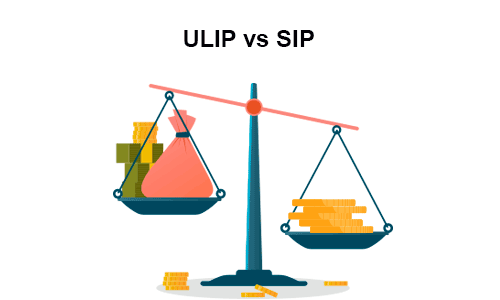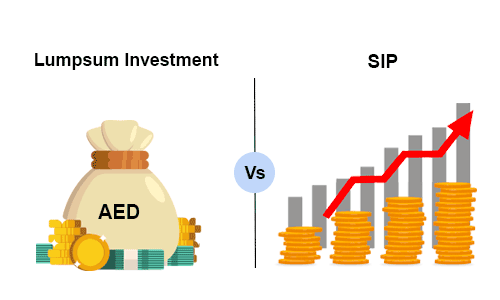How to Pay Missed SIP Instalment?
By setting up an SIP, you commit to investing a fixed amount regularly in mutual funds, usually monthly. This ensures you stay on track with your investment goals, while also benefiting from the power of compounding and rupee cost averaging. However, despite the ease and benefits of SIPs, there can ...read more
Why Do SIP Installments Get Missed?
There can be several reasons why an SIP payment might be missed. Some common ones include —
- Insufficient funds in the bank account: This is one of the most common reasons for a missed SIP payment. If the account balance is lower than the SIP amount, the payment cannot be processed.
- Forgetfulness or lack of awareness: Sometimes, investors simply forget that the SIP payment is due.
- Unforeseen financial obligations: Unexpected expenses can also drain funds from your account, preventing the SIP payment from being processed.
While these reasons can lead to a missed SIP, it’s important to note that this doesn’t necessarily mean your investment will be canceled or that penalties will apply.
Compare & Invest in Best Investment Plans in UAE -
Some of the best Investment quotes in UAE & Dubai are:





What Happens When You Miss an SIP Payment?
For missed SIP payments, the consequences are generally not severe. In most cases, mutual fund houses don’t charge penalties for missed payments, but the missed instalment can impact your long-term financial growth due to missed opportunities for compounding.
However, there are some things to be aware of —
- ECS Rejection Fee: While mutual fund houses don’t impose penalties, your bank might charge an ECS (Electronic Clearing Service) rejection fee if there are insufficient funds in your account.
- SIP Cancellation: If you miss a few SIP payments consecutively, the fund house may cancel your SIP, and your investment may be discontinued. In some cases, the fund house may discontinue debiting the amount as well.
- Impact on Compounding: An SIP installment missed can disrupt the rhythm of regular investments, which can affect the compounding benefits.
SIP Calculator
How to Pay Missed SIP Instalment?
If you’ve missed an SIP installment, here are some practical steps to help you get back on track —
1. Resume Your SIP
If your SIP was paused due to missed payments, you can simply resume the instalment. There is no need to start a new SIP altogether. Ensure that the bank account linked to your SIP has the necessary balance, and the payments will be debited automatically on the next due date.
2. Deposit Funds into Your Bank Account
If your SIP is missed due to insufficient funds, you can quickly deposit into your bank account. Once your account balance is sufficient, the next SIP instalment will be debited automatically on the scheduled date. This ensures that your investment continues without disruption.
3. Contact the Fund House or AMC
mutual funds may allow you to pay missed instalments as a lump sum without any additional penalties, ensuring the continuity of your investment plan.
4. One-Time Payment for the Missed Instalment
In cases where the SIP installment was missed due to insufficient funds, some fund houses allow you to make a one-time payment equivalent to the missed SIP amount. This will help maintain the continuity of your SIP and prevent any gaps in your investment growth.
5. Set Up Auto-Debit to Prevent Future Missed Payments
By linking your SIP with automatic monthly deductions from your bank account, you ensure that your payments are made on time. This automatic setup eliminates the possibility of insufficient funds if you maintain the required balance in your account.
What Are Your Options if You Know You Won't Be Able to Pay?
If you know you’ll face a cash crunch or have unavoidable financial commitments, it’s better to pause or stop your SIP temporarily than miss several payments in a row.
Here’s what you can do —
- Pause Your SIP: Many mutual fund houses offer a facility to pause your SIP payments temporarily for a few months. During this period, no payments will be deducted, and your investment won’t be affected. Once your financial situation improves, you can resume your SIP payments.
- Stop Your SIP: If you are facing a long-term financial crunch, you can stop your SIP and redeem your investments if necessary. However, pausing or stopping your SIP should be carefully considered, as it could impact your long-term goals.
Tips to Avoid Missing SIP Payments
Here are some steps to help ensure that you never miss an SIP instalment —
- Monitor Your Bank Account Balance: Keep a regular check on your bank account balance, especially around the time when your SIP payment is due. This will help you avoid the situation where the funds in your account are insufficient.
- Set a Buffer Amount: Try to keep a buffer amount in your bank account above and beyond your SIP instalment. This will ensure that even if you have unexpected expenses, you’ll still have enough to cover your SIP.
- Use an SIP Calculator: Before starting an SIP, use an SIP calculator to determine how much you can afford to invest. This will give you a better understanding of your monthly commitment and help you manage your finances more effectively.
Frequently Asked Questions
1. Do mutual funds levy a penalty for missing an SIP?
Mutual funds generally don’t charge penalties for missing an SIP. However, if your bank account has insufficient funds or the auto-debit fails, your bank might impose a fee. It's important to ensure there are enough funds in your account to avoid such charges.
2. Will pausing my SIP have any negative effects?
Pausing your SIP means you won’t invest for that month. However, it's advisable to pause your SIP only if you face significant cash flow issues. Alternatively, you can consider a top-up SIP, which allows gradual increases in your SIP amount without a heavy immediate impact on your budget.
3. Can I pay a missed SIP instalment?
Yes, if you miss an SIP instalment due to insufficient funds or any other reason, you can make a one-time investment for the missed amount directly in the same mutual fund, ensuring your investment continues without disruption.
4. What happens if I miss my SIP instalment?
Missing an SIP instalment may not immediately cancel your plan, but repeated missed payments can result in the discontinuation of the SIP. It’s best to contact your fund house or financial advisor for options to resume your instalments and avoid long-term disruptions in your investment.

More From Investment
- Recents Articles
- Popular Articles






.jpg)











.jpg)
.jpg)

















